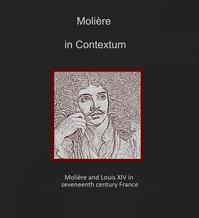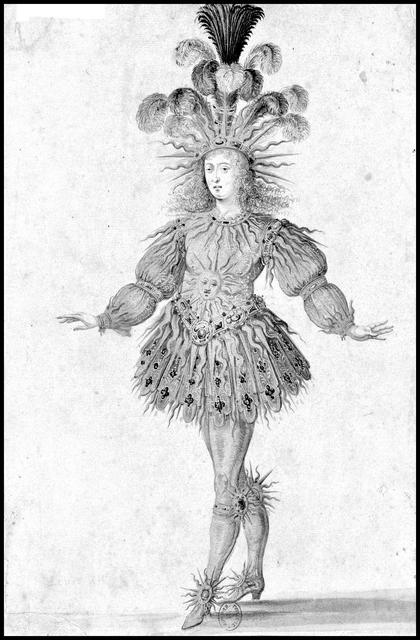MOLIÈRE IN CONTEXUM
Moliere and Louis XIV in seventeenth century France
35 pages
Sample pages
Introduction
Due to the complexity of the subject I narrowed the narrative to the relationship between Molière and Louis XIV, and how clever Louis exploited the satires to control both the population and the bourgeoisie. It was an opportunity to acknowledge the king’s less known talents as a passionate ballet dancer and director of performances, and how he used dancing to control the nobility.
The excerpts of plays begin with the first one performed when Molière returns to Paris after an absence of twelve years. For brevity, I shortened certain dialogues. The ones that follow use commedia dell’arte characters and plots, which become a part of Molière’s repertoire after he shares a theatre with an Italian troupe. The last excerpt is his last performance.
The second chapter provides a timeline and additional background. A production version is available at Alpha Ink Editions.
Louis XIV in the "Ballet de La Nuit"
“Le Grand Siècle”
Seventeenth-century Europe is in disarray, embroiled in endless wars that deplete economies exacerbated by the Little Ice Age, a long cold period that destroys crops.
Notwithstanding, France’s military expansion and colonial trade provide a healthy tax base which is used to improve infrastructure as well as encourage scientific and artistic achievements. For this reason seventeenth century France is called “le Grand Siècle” or the Grand Century, culminating under King Louis XIV.
Louis continues in his grandfather and father’s footsteps to revamp Paris and promote the arts. He creates the Royal Academy of Painting and Sculpture, the Royal Academy of Dance and a short time later, the Academy of Music and the Academy of Science. Paris flourishes as a cultural center.
When he’s not plotting to conquer his neighbors, Louis’ passions are dance and the theatre. He attends daily ballet lessons, and orders that everyone in his royal court learn to dance. If the nobility is occupied mastering the steps to a perfect bourrée or gavotte, there is no time to cause mischief against the Crown.
The king holds his first theatrical performance in 1653, with himself as the main dancer. The “Ballet de la Nuit” (Ballet of the Night) lasts from sundown to sunset, a metaphor of France in the “darkness” and himself as the “light” that saves the country. It is after this presentation that he is called the Sun King (le Roi Soleil ). Success motivates him to create more lavish sets and costumes, and he invites theatre companies to make Paris their home.
Molière, born Jean-Baptiste Poquelin, receives an excellent education. He studies law and through his father’s contacts is offered work in the royal court. He chooses, instead, to be an actor of tragedy and changes his name to honor the poet François de Molière d'Essertines.
He partners with the actress Madeleine Béjart to open the Illustre Théâtre but the theatre goes bankrupt and he spends time in jail for debts before travelling around the country with his troupe, in 1647. Eventually he leans towards comedy, and after twelve years returns to Paris to perform Les Précieuses Ridicules (The Affected Ladies) a satire on the pretensions of the bourgoisie.
Excerpt from
THE AFFECTED LADIES - LES PRÉCIEUSES RIDICULES
The play is a success. Molière is awarded the title of “Troupe de Monsieur” ( Monsieur referring to the king's brother Philippe I ) and his company is installed in the Théâtre du Petit-Bourbon alongside a troupe of commedia dell’arte actors: Les Italiens.
Louis understands the importance of entertainment to divert people from their problems, and the satires are so popular he ignores complaints when they make fun of doctors or the bourgeoisie. Instead, Molière and his actors are given a royal pension and the title “Troupe du Roi”.
Les Précieuses Ridicules is one of the last performances King Louis will attend in Paris. Shortly after, he relocates to his father’s country residence in Versailles. Traumatized by his experience as a child in exile during the “ la Fronde” riots, he harbors a lifelong mistrust of Parisians.
In his remaining forty-two year reign he visits Paris only twenty-four times for official ceremonies. To keep tabs on the nobility, whom he also mistrusts, they must live a part of the year at the palace in Versailles. Actors, musicians and dancers also perform for him at the palace.

